Is It Possible To Lose Belly Fat In A Week?
A healthy diet, proper hydration, and some good sleep to shed off that extra tummy fat.

Image: Shutterstock
Losing belly fat in just a week is scientifically not possible. It is known that belly fat is quite stubborn. It is linked to diabetes, heart disease, metabolic syndromei A group of conditions like obesity and high blood pressure that together increase the risk of developing diabetes and heart diseases. , and PCOSi A hormonal disorder where small cysts grow on the outer edges of the ovaries and cause irregular menstrual cycles. (1), (2).That is why it is important to devise a strategy to shed abdominal fat as quickly as possible. But how to lose belly fat naturally in 1 week? Is it possible? We have the best tips to help you do so. Read on to learn how to lose belly fat fast in just a few weeks. Scroll down!
In This Article
What To Do To Lose Belly Fat Fast
1. Start The Day With Fenugreek Water
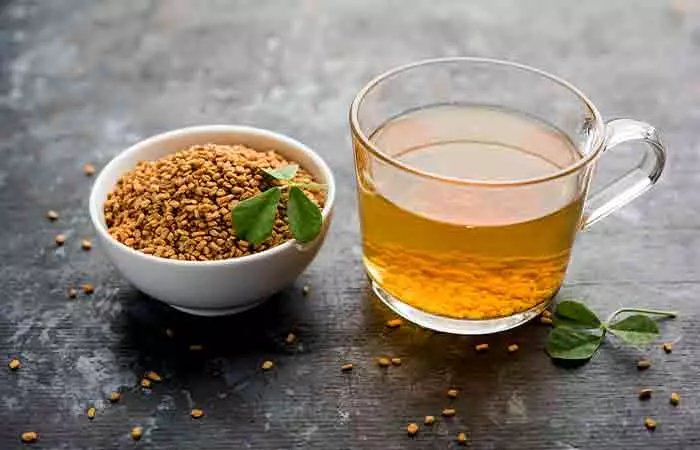
Fenugreek (or methi) seeds can prevent fat accumulation and have hypoglycemic properties (3). They can also improve insulin sensitivity in people with type 2 diabetes (4).
Drink fenugreek soaked water first thing in the morning (add two teaspoons of fenugreek seeds to a cup of water (375 ml) and let them soak overnight), 30 minutes before breakfast. Avoid adding fenugreek seeds to detox water if you have hypoglycemiai A condition in which blood glucose level becomes lower than the normal range and causes confusion, heart palpitations, and anxiety. . Instead, you can have lime water.
 Quick Tip
Quick Tip2. Have A High-Protein Breakfast
Wondering how to lose belly fat with this method? A high-protein breakfast, like protein powder smoothies and eggs or Greek yogurt and oatmeal, helps in keeping you full for a long duration. Proteins take longer to digest and hence increase satiety.
Sara Chatfield, MPH, RDN, says, “A high-protein diet will not cause belly fat unless the diet is too high in calories. In fact, adequate protein is important for maintaining muscle mass and metabolic rate during weight loss. However, eating too much sugar and refined carbs from sugary drinks, packaged snack foods, and white flour products can lead to more belly fat storage.”
Dietary sources of protein increase thermogenesis in the body, which means you burn calories to digest the protein.
Proteins also help build lean muscle. The number of mitochondria found in lean muscle is higher. If lean muscle increases, the number of mitochondria also increases, which, in turn, helps boost metabolism (5).
3. Eat Smaller Portions More Often
If you are pondering on how to reduce belly fat in a week by eating more often, here’s how! Practicing portion control is a great way to reduce calorie intake. You may buy portion control plates to get an idea of how much protein, veggies, whole grains, and healthy fats you should consume per meal.
As a rule of thumb, half of the plate should be lean protein, one-fourth of it should be veggies, and the rest should be whole grains and healthy fats. Also, use smaller plates for your meals (6).
Have a meal or snacks every 3 hours. Include a healthy snack between two large meals. This will keep you from eating large quantities of food when you are super hungry. Along with this, follow mindful eating practices to prevent overeating. These include eating slowly, eliminating distractions like TV screens, and paying attention to your hunger and fullness cues.
4. Reduce Refined Carbs And Sugar
Research proves that increased consumption of refined carbs and sugar can lead to weight gain (7). Refined carbs are easy to digest. This, in turn, reduces satiety and increases blood glucose levels.
High intake of refined sugar increases fat deposition and inflammation-induced weight gain (8). Therefore, it is best to avoid foods like burgers, pizza, cakes, pastry, churros, sodas, etc. (9).
5. Drink Enough Water To Reduce Belly Fat
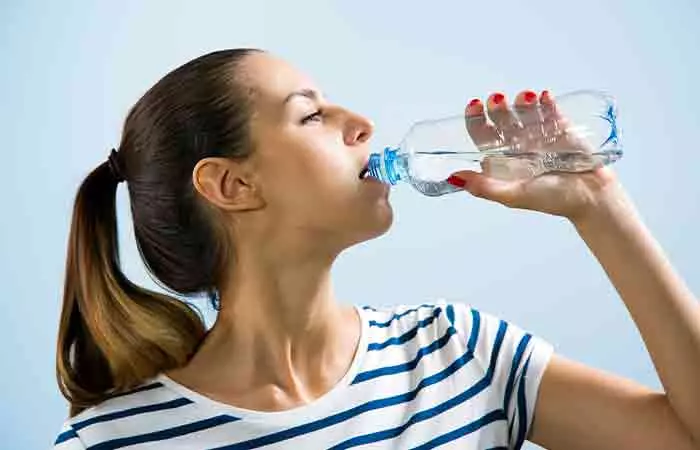
Various studies prove that drinking approximately eight glasses of water per day can help increase thermogenesis, satiety, and fat mobilization (10), (11), (12). Keep sipping water throughout the day to start reducing belly fat. Here’s how much water to drink per day.
 Quick Tip
Quick Tip6. Increase Intake Of High-Fiber Foods
Dietary fiber has a low glycemic index and helps to increase satiety by forming a gel-like layer in the stomach. Dietary fiber also acts as food for good gut bacteria, which break down fat into short-chain fatty acids (13), (14). The short-chain fatty acids can help reduce belly fat (15), (16).
A 2020 study published in Nutrients observed a shift in BMI as fiber consumption rises. The following information was derived from a particular randomized weight reduction and maintenance clinical trial in middle-aged overweight African-American women. Their dietary fiber intake was increased and the BMI change was assessed over 18 months, which consisted of 6 months of dietary intervention and 12 months of follow-up. A decrease in BMI was observed with an increase in fiber intake. Check out the graph below to learn more.

Impact of increased dietary fiber intake on BMI
Source: A Comprehensive Critical Assessment of Increased Fruit and Vegetable Intake on Weight Loss in WomenFiber adds bulk to the stool, thereby making food transition in the colon easier. This, in turn, improves digestion. If you are not sure which foods are high in dietary fiber, check out this list.
7. Consume Omega-3 Rich Fatty Fish
Fatty fish, like salmon, tuna, and mackerel, are loaded with omega-3 fatty acids. Polyunsaturated fatty acids (PUFAs) can help reduce inflammation, thereby reducing the risk of inflammation-induced weight gain. PUFAs can also help prevent fat accumulation, improve body composition, and increase satiety (17), (18).
8. Consume Veggies And Dark Leafy Greens
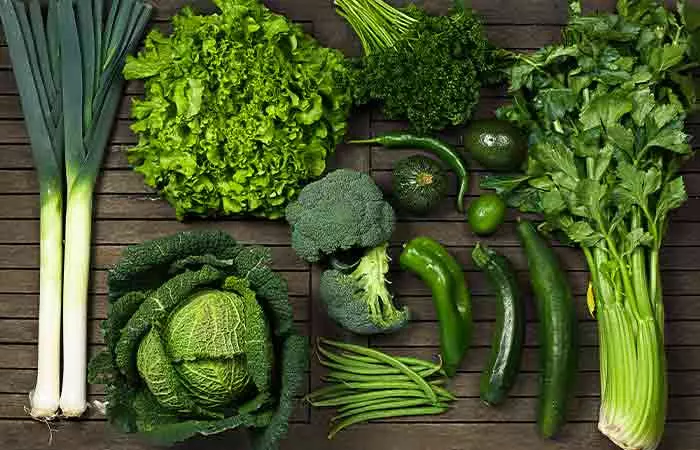
Veggies and dark leafy greens are good sources of dietary fiber, vitamins, and minerals. Scientists have found that consuming veggies regularly helps reduce waist circumference and reduces the risk of obesity (19).
It is important to note that though veggies and fruits can help in shedding belly fat, you must practice portion control and not consume excess calories (20).
9. Make Snacking Healthy And Tasty
Losing weight or being on a diet does not mean you have to give up on snacking. You have to snack healthy (21). It is a good practice to snack on a handful of nuts, low GI fruits like apple, watermelon, oranges, and muskmelon, and veggies like carrots, cucumber, and celery. You may also have Greek yogurt, berries, and homemade granola bars.
10. Reduce Salt Consumption
High salt consumption can lead to obesity, insulin resistance, hypertensioni A condition where the blood pressure against the walls of arteries is too high, which causes the blood pressure to rise above normal. , and diabetes (22). Salt also tends to retain water in the body, thereby increasing your overall body weight.
If you just have a week to shed belly fat, reduce your salt intake. Cut out foods like fries, chicken nuggets, potato wedges, potato wafers, pizza, ketchup, packaged salad dressings, packed noodles, ready-to-eat foods, canned food, and pickles from your diet.
11. Consume Green Tea/Black Coffee
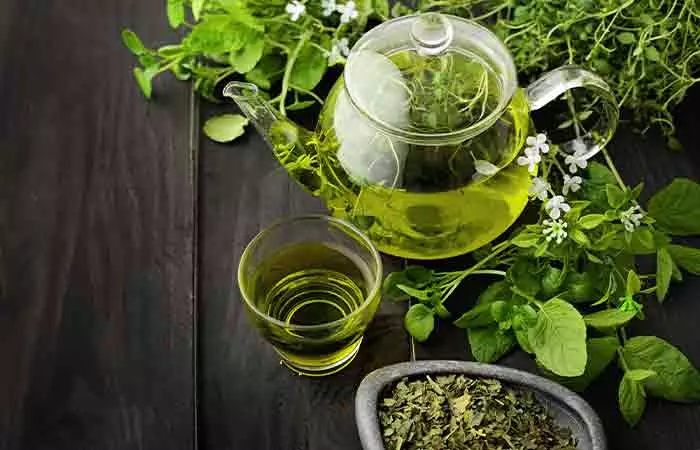
Green tea is great for weight loss. It contains EGCG, which is an antioxidant that helps flush out toxins and reduce inflammation in the body (23). The caffeine in green tea also helps in weight loss. Caffeine and chlorogenic acid in coffee increase satiety and induce thermogenesis (24).
You may drink 3-4 cups of green tea or 2 cups of black coffee per day. Opt for decaffeinated tea and coffee if you have caffeine intolerance.
12. Add Ginger To Detox Water
Researchers have found that ginger aids weight loss by increasing satiety, thermogenesis, and fat burning and suppressing fat synthesis and absorption (25). Adding 3-4 slices of ginger to your detox water will not only add zest to the water but also help you shed belly fat quickly.
13. Avoid Consuming Trans Fats
Trans fats are not good for health as they can lead to abdominal obesity and increase the risk of cardiovascular diseases, diabetes, hypertension, high blood sugar levels, and breast cancer (26).
Try pre-cooking meals and refrigerating them. Have one when you are hungry instead of opting for a trans-fat-loaded food. You can also prepare low-calorie healthy snacks.
14. Reduce Alcohol Consumption
A research study shows that moderate to light alcohol consumption does not lead to obesity, but regular consumption of excessive alcohol does (27). You may have a glass or two of wine once or twice a week.
15. Consume Whole Grains
Whole grains, like wheat, barley, sorghum, buckwheat, quinoa, amaranth, broken wheat, and oats, help increase satiety and lower post-meal glucose and insulin levels (28). You can make delicious low-cal breakfasts or 30-min meals with whole grains.
There are few other things you should keep in mind apart from eating right and avoiding unhealthy fatty foods. Richard R, a blogger, shares insights on losing belly fat in a week without exercise, drawing from his medical school knowledge and personal research. He stresses the impossibility of drastic fat loss in a week but advocates for achievable progress with patience. He suggests following a calorie deficit, balanced diet and living a healthy lifestyle over strict diets. He adds, “Now what I actually do to prevent gaining weight with the things I like to eat; I burn a lot more calories during the day and during my cardio sessions. This way I don’t go past my calorie limit for the day, on the contrary because of all my movement and exercise during the day I actually end up in a calorie deficit every day (i).”
16. Mix Cardio And Strength Training

Sara Chatfield says, “The most effective way to lose belly fat is through aerobic exercises that burn fat, like brisk walking, cycling, swimming, aerobic dancing, or tennis. Combining aerobic exercise with muscle-building resistance training exercises, like weight lifting, elastic bands, push-ups, or squats, is even more effective for reducing belly fat.”
Exercising is extremely important for mobilizing fat and toning up (29). Cardio helps improve heart and lung function, stamina, and endurance and shed overall body fat. If you do not have the time to hit the gym, here are a few at-home cardio exercises.
Strength training, on the other hand, helps you tone up. You can lift weights, do resistance training, HIIT, or use your bodyweight to burn calories, sweat, and get a sculpted body.
Do a mix of cardio and strength training (at least 30 minutes of cardio, 3 to 4 times a week, and 30 minutes of strength training for 2 days) to see a visible difference (30). To effectively achieve your fitness goals, you can try a variety of exercises to reduce belly fat right at home. For instance, lying leg raises, leg in leg out, etc.
17. De-Stress Regularly
Did you know that cortisol (the stress hormone) leads to chronic low-grade inflammation in the body (31)? This, in turn, causes fat to accumulate in the abdomen area. Scientists have also found that an increased amount of stress can lead to emotional eating and abdominal obesity (32).
Now that you have got an idea of how to lose belly fat in 7 days, there is another thing you should be careful about. It is very important that you de-stress and unwind every day. Set aside 20 minutes for yourself. Listen to mild music, paint, read a book, talk to an old friend, or learn a new skill. You must also get at least 7 hours of sleep every night.
Apart from the above-mentioned tips, you can include the yoga asanas mentioned in the section to tone your belly.
Key Takeaways
- Making changes to your eating habits, such as eating healthier and fiber-rich food, may reduce belly fat.
- Avoid heavy alcohol consumption, drink ginger detox water, coffee, or black tea, and consume 8 glasses of water daily.
- A mix of strength and cardio exercises can also decrease belly fat.
- De-stressing and unwinding can reduce belly fat.
Yoga Poses To Reduce Belly Fat
Here are some yoga poses that may help reduce belly fat:
- Sun Salutations (Surya Namaskar): This is a series of 12 yoga poses performed in a sequence. It may helps improve flexibility and strengthen the muscles and joints.
- Bhujangasana (Cobra Pose): Regular practice of this yoga asana stretches your abdomen, strengthens your back, and tones your abdominal muscles.
- Boat Pose (Naukasana): This pose opens the chest, engages the core muscles, and helps reduce belly fat.
- Padahastasana (Standing Forward Bend): This asana mainly relaxes the muscles, improves flexibility, and tones the abdominal muscles.
Infographic: Best Exercises To Reduce Belly Fat Fast
The key to losing stubborn muffin tops is eating a healthy diet replete with nutrients that boost your metabolism. What is equally important is having a strict workout routine that will target your core and abdominal muscles. There are several workouts to lose belly fat. These will help you understand how to burn belly fat.
Check out the infographic below to learn more about the exercises you need to add to your daily routine to burn your belly fat quickly and effectively. Illustration: StyleCraze Design Team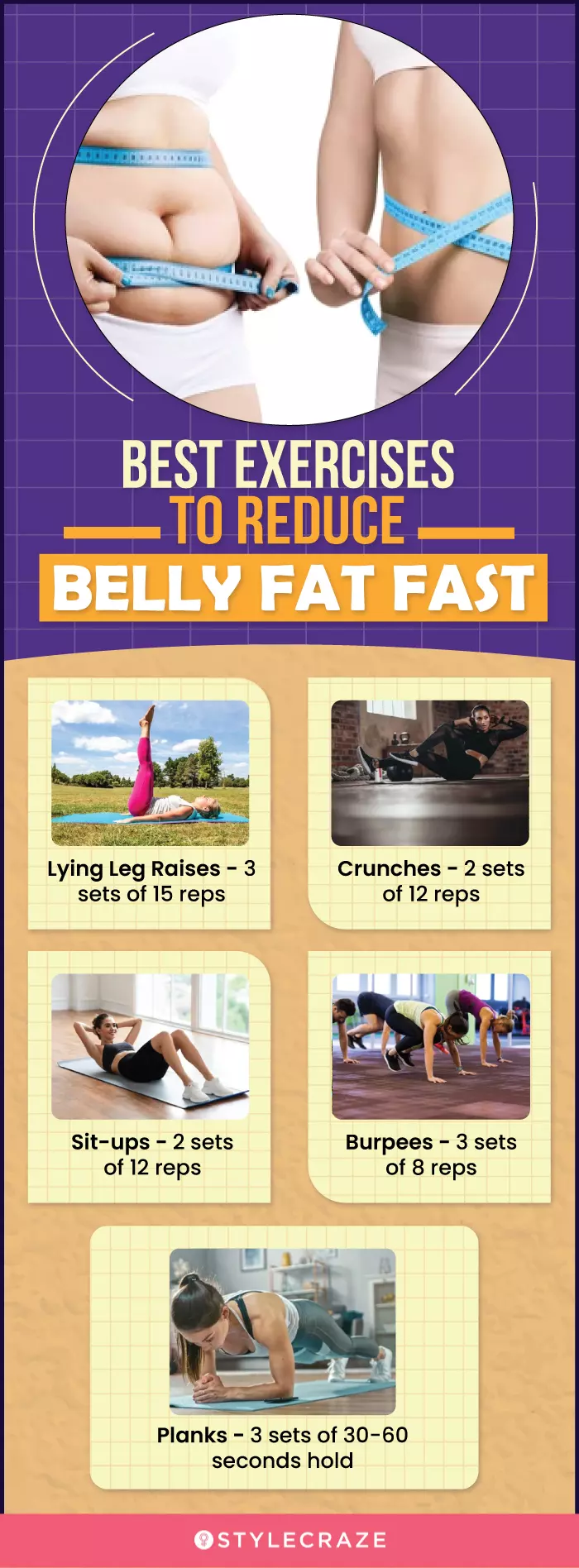
Conclusion
Reducing belly fat is tough, and it is not possible to lose belly fat in a week without undergoing surgery by a licensed doctor. Talk to your doctor to know if there is an underlying reason, such as a genetic predisposition of abdominal obesity, medical history, and current medications. They may also be able to guide you more and offer solutions to your “how to reduce belly fat in a week” queries. Follow these tips and stay focused, and you will start shedding belly fat eventually.
If you are wondering how to lose belly fat in a week, you need to think again! You are dreaming the unimaginable unless you want to go for surgery. Visceral fat is stubborn and needs a long-term strategy to shed the flab and get a flat tummy. Start your weight loss journey by making changes to your diet. Consume more protein and fiber as they help improve satiety and reduce energy intake. Moreover, fiber helps produce short-chain fatty acids that may help reduce belly fat. Also, start your day by drinking fenugreek seeds and go for portion control. Avoid foods with refined sugar, salt, and a high amount of carbohydrates, and drink lots of water. Complement these diet changes with regular exercise, and you will eventually see results. However, talk to your doctor to find out if there is any underlying cause for your tummy fat before researching how to lose stomach fat.
Frequently Asked Questions
What role does sleep play in losing belly fat?
Sleep plays an important role in losing belly fat, as sleep deprivation may alter the level of leptin and ghrelin, the hormones needed for appetite regulation (33). This may lead to increased cravings for high-calorie and unhealthy foods and result in overeating, ultimately making it harder to shed excess weight (34).
What food flattens your stomach fast?
Sara Chatfield says, “Reaching for foods high in soluble fiber is a good bet for reducing belly fat. Soluble fiber slows down sugar absorption and helps you feel full with fewer calories. Good sources of soluble fiber include beans, oats, sweet potatoes, apples, pears, oranges, nuts, and seeds.”
Which exercise burns the most belly fat?
Intense aerobic exercises, such as running, walking at a brisk pace, jogging, cycling, and swimming can help burn belly fat and improve overall fitness. Including high-intensity interval training (HIIT) into your workout routine can help speed up calorie burn and reduce belly fat.
Do planks burn belly fat?
Exercises such as the plank, crunches, squats, and sit-ups utilize body weight and work the abdominal muscles, which make them effective at slimming and reducing belly fat. However, it is important to note that these exercises do not spot-reduce abdominal fat deposited around the waistline. Instead, they facilitate overall fat loss which translates to reduced waist circumference.
How long does it take for belly fat to go away?
It may take up to 26 months for a woman and 21 months for a man to safely lose belly fat. However, this largely depends on several factors such as starting, existing metabolism, workout plans, diet, age, lifestyle, etc.
How can I reduce my belly fat without exercise?
You can reduce belly fat by following a low-carb, high-protein diet. Diet plays a more important role in weight loss than exercise. However, exercise has numerous benefits, so it is important to stay at least moderately active.
Does apple cider vinegar burn belly fat?
There is a lack of evidence to suggest that apple cider vinegar burns belly fat. However, proponents of ACV claim that drinking ACV on an empty stomach may curb appetite and facilitate weight loss.
How to lose belly fat in 2 weeks?
It is not possible to lose belly fat in 2 weeks. However, there are tips and exercises that may help you reduce the fat. If you are consistent and proper with your diet and exercises, then you may see visible changes in a month or two. But, it varies from person to person.
How to lose belly fat in 7-10 days for a woman?
You cannot get rid of belly fat completely in 7-10 days. For both men and women, it may take more than a week to lose belly fat. Following the above-mentioned tips and maintaining a healthy lifestyle with consistent workouts will help lose belly fat.
Illustration: Is It Possible To Lose Belly Fat In A Week?
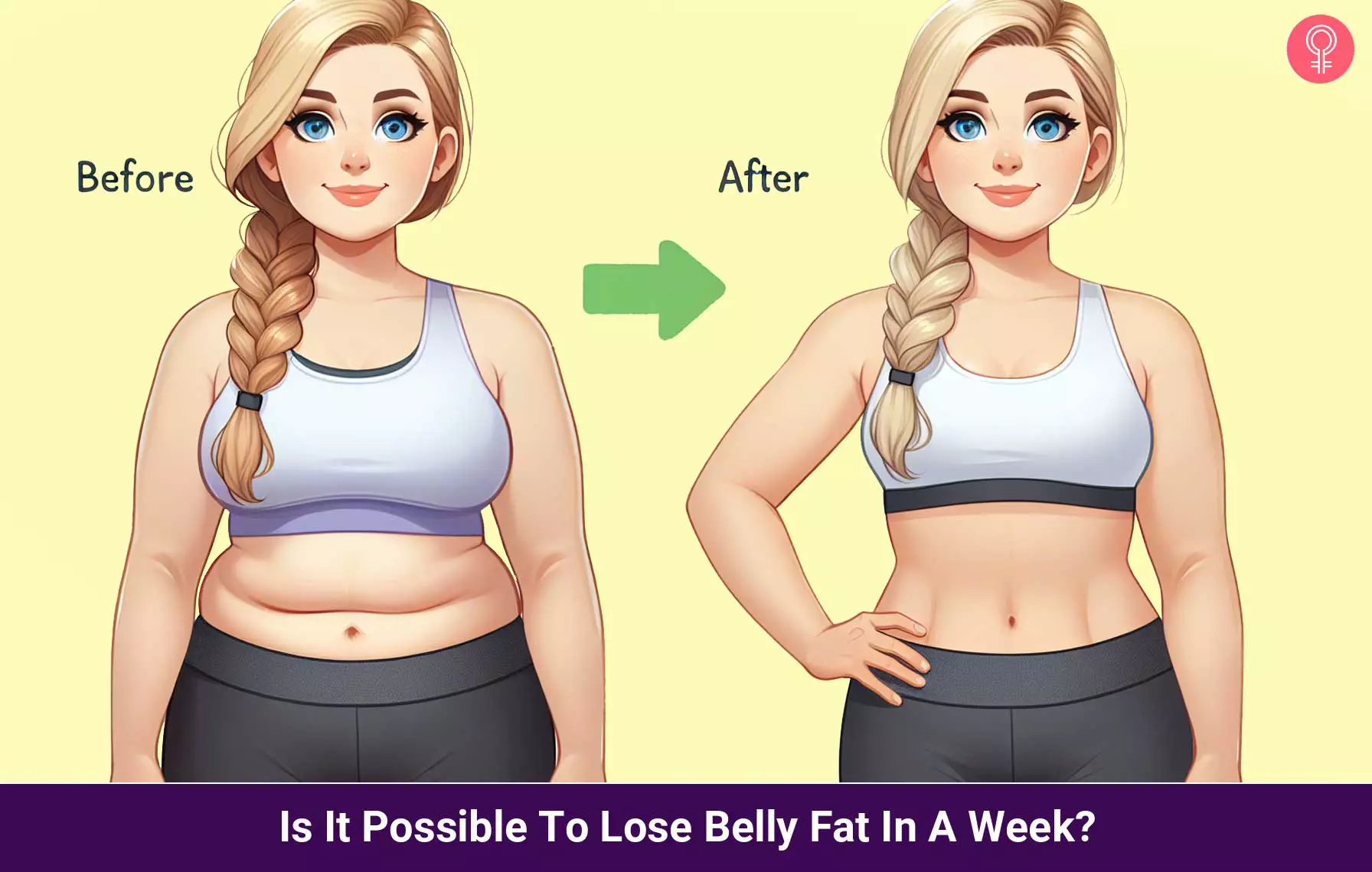
Image: Dall·E/StyleCraze Design Team
Lose belly fat in just one week with these 5 simple steps! Watch this video to learn how to get a flat stomach in no time.
Personal Experience: Source
StyleCraze's articles are interwoven with authentic personal narratives that provide depth and resonance to our content. Below are the sources of the personal accounts referenced in this article.
i. How to Lose Belly Fat in 1 Weekhttps://medium.com/@fatlosscommunity/how-to-lose-belly-fat-in-1-week-1cd8a1d9f249
References
Articles on StyleCraze are backed by verified information from peer-reviewed and academic research papers, reputed organizations, research institutions, and medical associations to ensure accuracy and relevance. Read our editorial policy to learn more.
- Abdominal fat distribution and disease: an overview of epidemiological data, Annals of medicine, US National Library of Medicine, National Institutes of Health.
https://www.ncbi.nlm.nih.gov/pubmed/1575956 - Abdominal fat quantity and distribution in women with polycystic ovary syndrome and extent of its relation to insulin resistance, The Journal of Clinical Endocrinology and Metabolism, US National Library of Medicine, National Institutes of Health.
https://www.ncbi.nlm.nih.gov/pubmed/17405838 - Common medicinal plants with antiobesity potential: A special emphasis on fenugreek, Ancient Science of Life, US National Library of Medicine, National Institutes of Health.
https://www.ncbi.nlm.nih.gov/pmc/articles/PMC4623635/ - Insulin-Sensitizer Effects of Fenugreek Seeds in Parallel with Changes in Plasma MCH Levels in Healthy Volunteers, International Journal of Molecular Sciences, US National Library of Medicine, National Institutes of Health.
https://www.ncbi.nlm.nih.gov/pmc/articles/PMC5877632/ - Protein, weight management, and satiety, The American Journal of Clinical Nutrition, US National Library of Medicine, National Institutes of Health.
https://pubmed.ncbi.nlm.nih.gov/18469287/ - What is the role of portion control in weight management? International Journal of Obesity, US National Library of Medicine, National Institutes of Health.
https://www.ncbi.nlm.nih.gov/pubmed/25033958 - The Effects of the Combination of a Refined Carbohydrate Diet and Exposure to Hyperoxia in Mice, Oxidative Medicine and Cellular Longevity, US National Library of Medicine, National Institutes of Health.
https://www.ncbi.nlm.nih.gov/pmc/articles/PMC5153507/ - Sugar consumption, metabolic disease and obesity: The state of the controversy, Critical Reviews in Clinical Laboratory Sciences, US National Library of Medicine, National Institutes of Health.
https://www.ncbi.nlm.nih.gov/pubmed/26376619 - Death by Carbs: Added Sugars and Refined Carbohydrates Cause Diabetes and Cardiovascular Disease in Asian Indians, Missouri Medicine, US National Library of Medicine, National Institutes of Health.
https://www.ncbi.nlm.nih.gov/pmc/articles/PMC6139832/ - Water-induced thermogenesis, The Journal of Clinical Endocrinology and Metabolism, US National Library of Medicine, National Institutes of Health.
https://pubmed.ncbi.nlm.nih.gov/14671205/ - Effect of ‘Water Induced Thermogenesis’ on Body Weight, Body Mass Index and Body Composition of Overweight Subjects, Journal of Clinical and Diagnostic Research, US National Library of Medicine, National Institutes of Health.
https://www.ncbi.nlm.nih.gov/pmc/articles/PMC3809630/ - Effect of Pre-meal Water Consumption on Energy Intake and Satiety in Non-obese Young Adults, Clinical Nutrition Research, US National Library of Medicine, National Institutes of Health.
https://www.ncbi.nlm.nih.gov/pmc/articles/PMC6209729/ - The effect of fiber on satiety and food intake: a systematic review, Journal of the American College of Nutrition, US National Library of Medicine, National Institutes of Health.
https://www.ncbi.nlm.nih.gov/pubmed/23885994 - Fiber and Prebiotics: Mechanisms and Health Benefits, Nutrients, MDPI.
https://www.mdpi.com/2072-6643/5/4/1417 - Colonic Health: Fermentation and Short Chain Fatty Acids, Journal of Clinical Gastroenterology, Wolters Kluwer.
https://journals.lww.com/jcge/Abstract/2006/03000/Colonic_Health__Fermentation_and_Short_Chain_Fatty.15.aspx - The role of short-chain fatty acids in the interplay between diet, gut microbiota, and host energy metabolism, Journal of Lipid Research, ASBMB.
https://www.jlr.org/content/54/9/2325.short - Omega-3 fatty acids in obesity and metabolic syndrome: a mechanistic update, The Journal of Nutritional Biochemistry, US National Library of Medicine, National Institutes of Health.
https://www.ncbi.nlm.nih.gov/pubmed/29621669 - Omega-3 fatty acid supplementation effects on weight and appetite in patients with Alzheimer’s disease: the omega-3 Alzheimer’s disease study, Journal of the American Geriatrics Society, US National Library of Medicine, National Institutes of Health.
https://www.ncbi.nlm.nih.gov/pubmed/19054188 - The Relationship between Vegetable Intake and Weight Outcomes: A Systematic Review of Cohort Studies, Nutrients, US National Library of Medicine, National Institutes of Health.
https://www.ncbi.nlm.nih.gov/pmc/articles/PMC6266069/ - Increased vegetable and fruit consumption during weight loss effort correlates with increased weight and fat loss, Nutrition & diabetes, US National Library of Medicine, National Institutes of Health.
https://www.ncbi.nlm.nih.gov/pmc/articles/PMC3488810/ - Snacking Recommendations Worldwide: A Scoping Review, Advances in Nutrition, US National Library of Medicine, National Institutes of Health.
https://www.ncbi.nlm.nih.gov/pmc/articles/PMC5962965/ - High salt intake causes leptin resistance and obesity in mice by stimulating endogenous fructose production and metabolism, Proceedings of the National Academy of Sciences of the United States of America, US National Library of Medicine, National Institutes of Health.
https://www.ncbi.nlm.nih.gov/pmc/articles/PMC5866545/ - Effects of green tea and its epigallocatechin (EGCG) content on body weight and fat mass in humans: a systematic review, Nutrición hospitalaria, US National Library of Medicine, National Institutes of Health.
https://www.ncbi.nlm.nih.gov/pubmed/28627214 - Caffeine and coffee: their influence on metabolic rate and substrate utilization in normal weight and obese individuals, The American Journal of Clinical Nutrition, US National Library of Medicine, National Institutes of Health.
https://pubmed.ncbi.nlm.nih.gov/7369170/ - A systematic review of the anti-obesity and weight lowering effect of ginger (Zingiber officinale Roscoe) and its mechanisms of action, Phytotherapy Research, US National Library of Medicine, National Institutes of Health.
https://www.ncbi.nlm.nih.gov/pubmed/29193411 - Trans fats—sources, health risks and alternative approach – A review, Journal of Food Science and Technology, US National Library of Medicine, National Institutes of Health.
https://www.ncbi.nlm.nih.gov/pmc/articles/PMC3551118/ - Alcohol Consumption and Obesity: An Update, Current Obesity Reports, US National Library of Medicine, National Institutes of Health.
https://www.ncbi.nlm.nih.gov/pmc/articles/PMC4338356/ - Whole grain consumption and weight gain: a review of the epidemiological evidence, potential mechanisms and opportunities for future research, The Proceedings of the Nutrition Society, US National Library of Medicine, National Institutes of Health.
https://pubmed.ncbi.nlm.nih.gov/12740053/ - Effect of exercise on obesity, Acta medica Scandinavica. Supplementum, US National Library of Medicine, National Institutes of Health.
https://www.ncbi.nlm.nih.gov/pubmed/3535415 - Effects of aerobic and resistance training on abdominal fat, apolipoproteins and high-sensitivity C-reactive protein in adolescents with obesity: the HEARTY randomized clinical trial, International Journal of Obesity, US National Library of Medicine, National Institutes of Health.
https://www.ncbi.nlm.nih.gov/pubmed/26202452 - Stress-induced cortisol response and fat distribution in women, Obesity Research, US National Library of Medicine, National Institutes of Health.
https://pubmed.ncbi.nlm.nih.gov/16353426/ - Stress, cortisol, and obesity: a role for cortisol responsiveness in identifying individuals prone to obesity, Domestic Animal Endocrinology, US National Library of Medicine, National Institutes of Health.
https://pubmed.ncbi.nlm.nih.gov/27345309/ - The impact of sleep deprivation on food desire in the human brain, US National Library of Medicine, National Institutes of Health.
https://pmc.ncbi.nlm.nih.gov/articles/PMC3763921/ - Metabolic consequences of sleep and sleep loss, US National Library of Medicine, National Institutes of Health.
https://pmc.ncbi.nlm.nih.gov/articles/PMC4444051/
Read full bio of Raelene Soler
- Sara Chatfield, MPH, RDN, is a Registered Dietitian Nutritionist with over 5 years of experience. She has a Master's in Public Health in Human Nutrition from the University of Michigan. She has worked in both clinical and public health settings, providing nutrition care to patients and clients with various health concerns.
 Sara Chatfield, MPH, RDN, is a Registered Dietitian Nutritionist with over 5 years of experience. She has a Master's in Public Health in Human Nutrition from the University of Michigan. She has worked in both clinical and public health settings, providing nutrition care to patients and clients with various health concerns.
Sara Chatfield, MPH, RDN, is a Registered Dietitian Nutritionist with over 5 years of experience. She has a Master's in Public Health in Human Nutrition from the University of Michigan. She has worked in both clinical and public health settings, providing nutrition care to patients and clients with various health concerns.
Read full bio of Ravi Teja Tadimalla
Read full bio of Payal Karnik






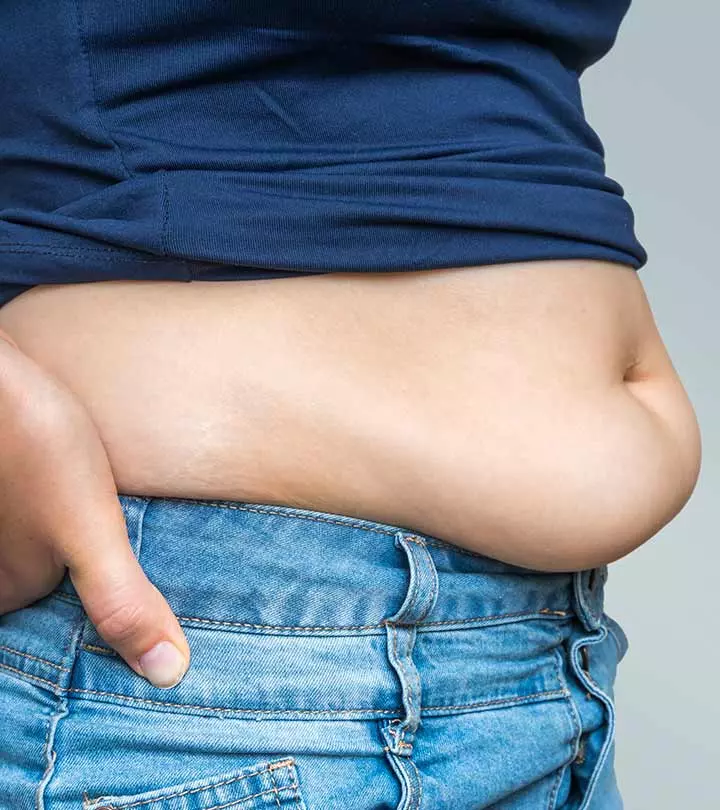
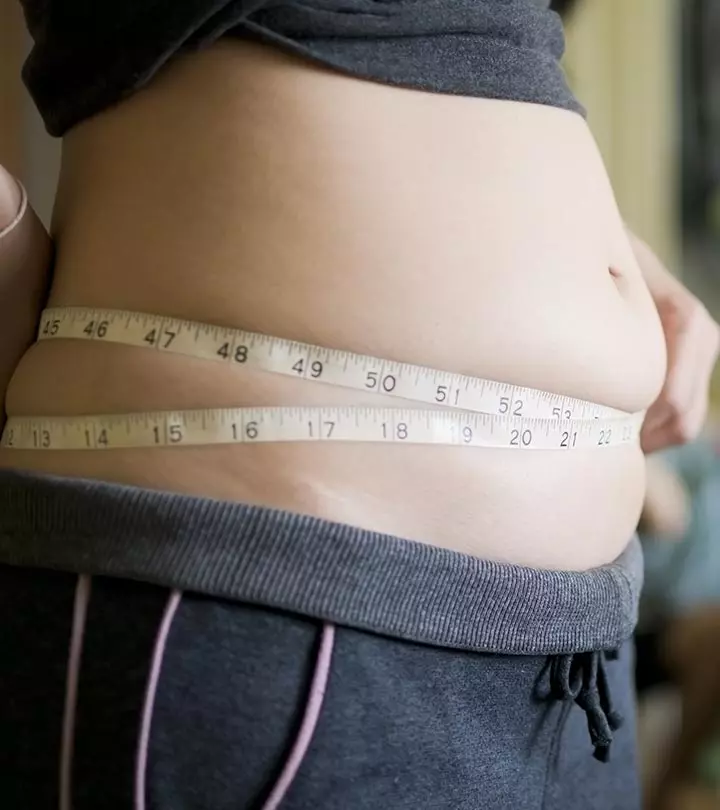





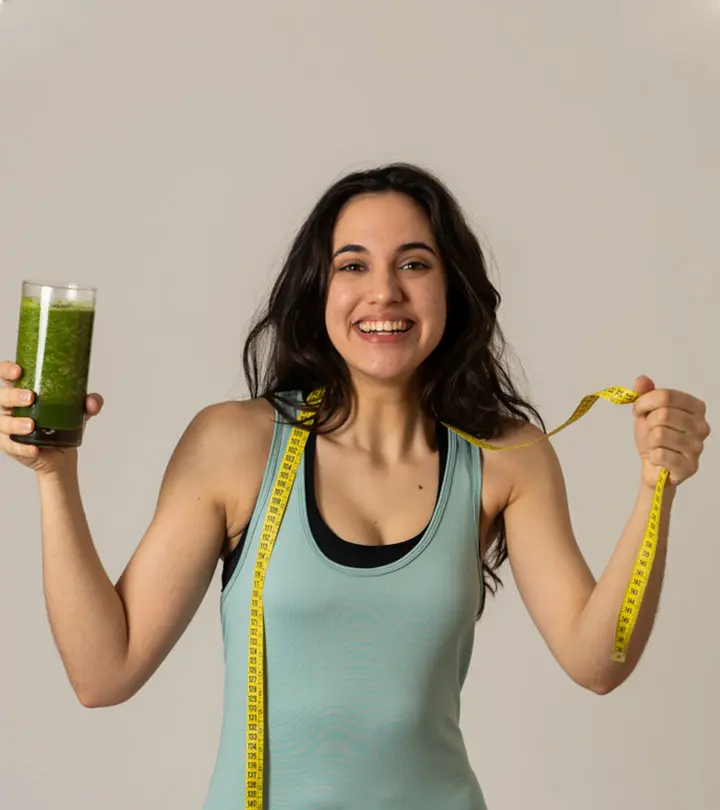



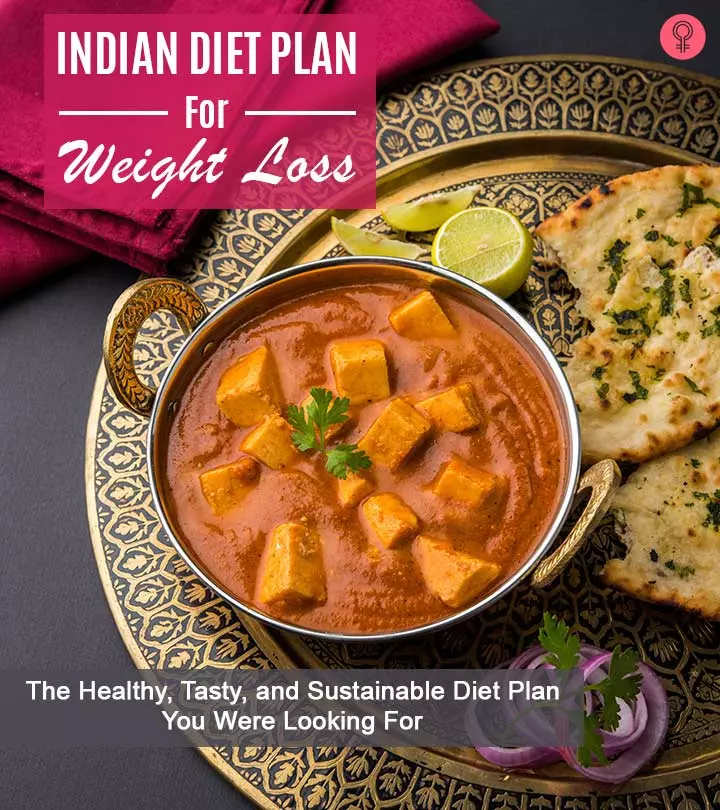


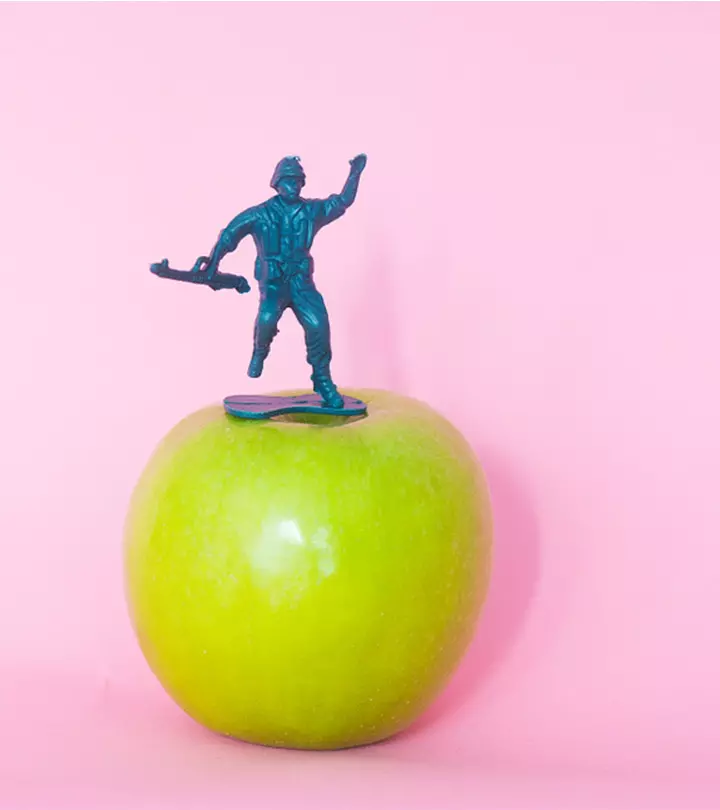

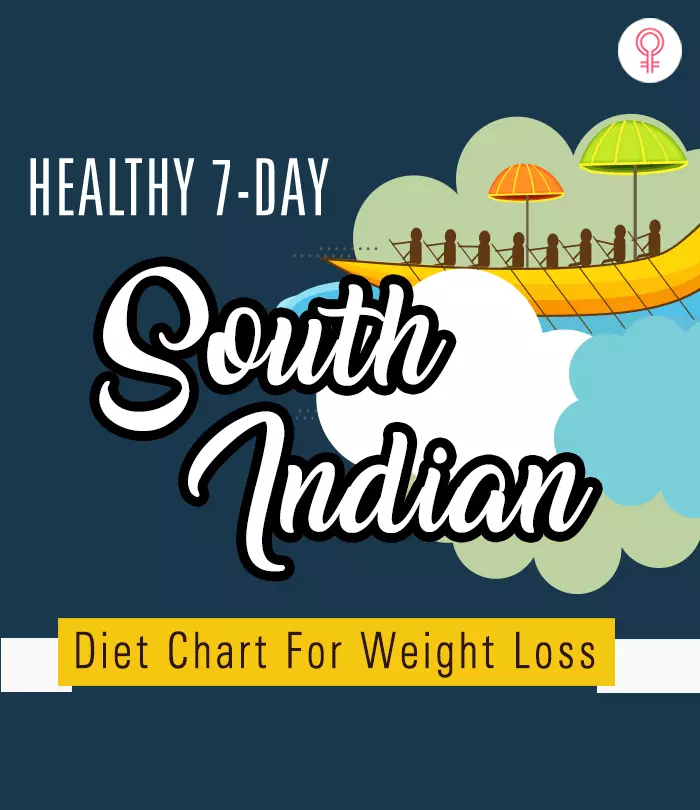
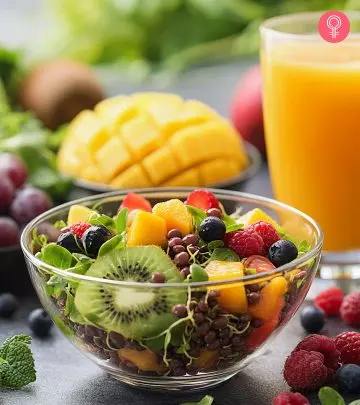
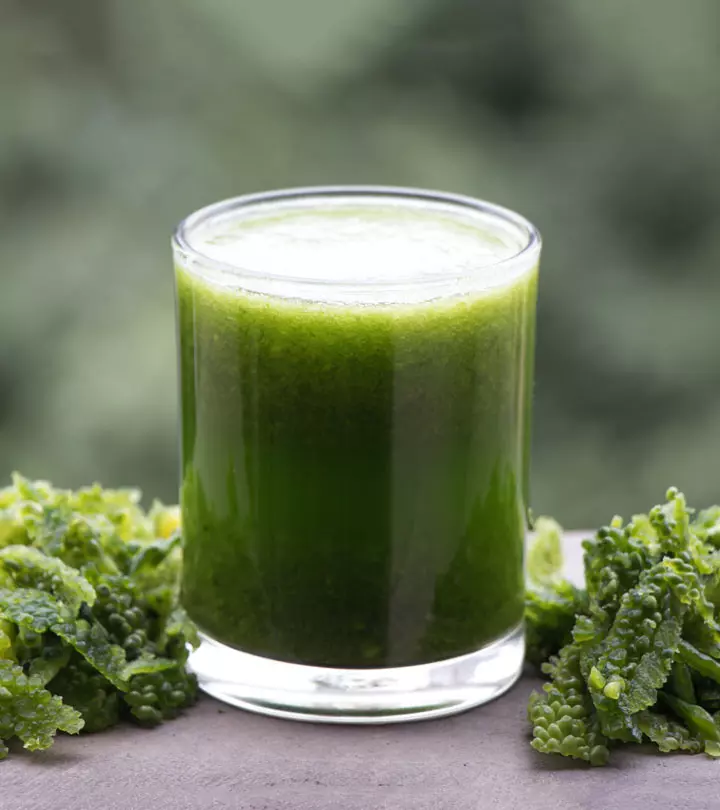
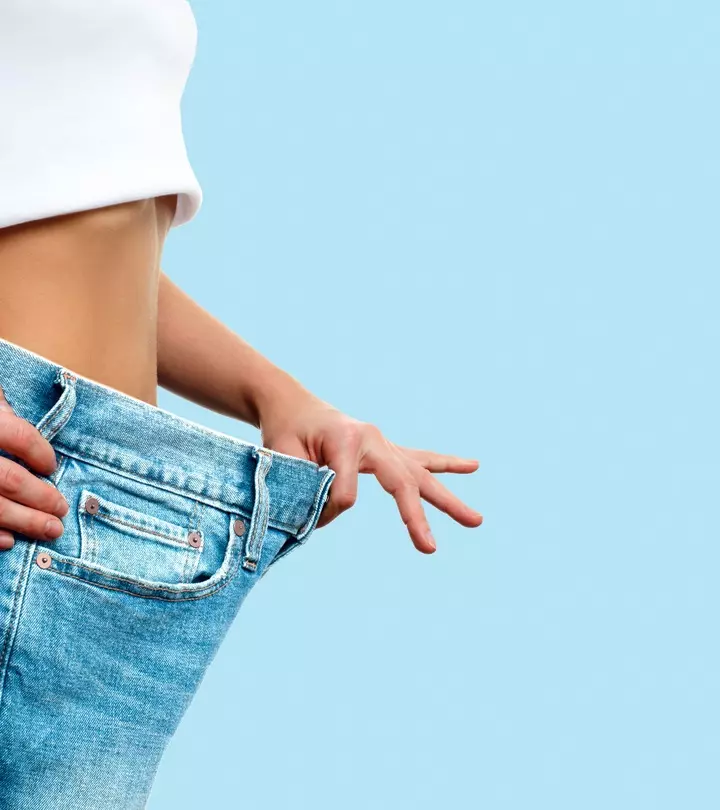
Community Experiences
Join the conversation and become a part of our empowering community! Share your stories, experiences, and insights to connect with other beauty, lifestyle, and health enthusiasts.